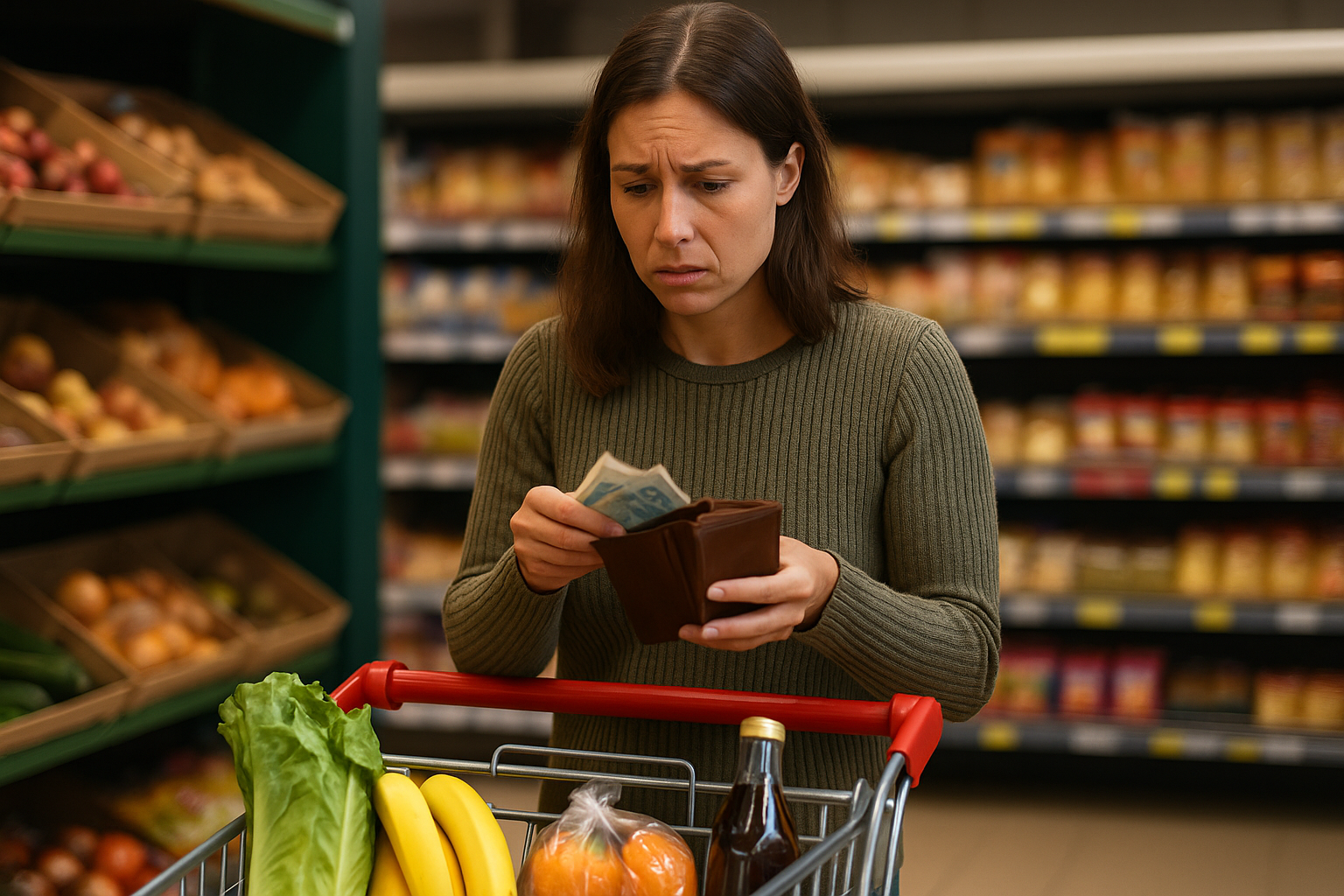THE price rises of food in Spain has far outstripped the boost in wages over the last six years, leaving everyone poorer.
Filling a shopping basket has become 38.5% more expensive since 2019, while wages have inched up by less than a third of that figure in the same period.
Data from the National Statistics Institute (INE) show overall consumer prices are now 22.3% higher than in 2019, but food has been hit far harder.
READ MORE: BBVA goes to Spain’s Supreme Court to fight government ‘meddling’ in Sabadell Bank takeover
Fresh produce alone has surged by 43.2%, while processed foods are up 33.7%.
By contrast, average gross wages have risen just 12.3% since 2019, according to Eurostat data.
In real terms, once inflation is factored in, Spanish workers are significantly worse off than they were five years ago.
The mismatch means Spaniards are spending a far greater share of their income on food, a trend the Bank of Spain warns will hit low-income households hardest.
READ MORE: This is the most beautiful town to visit in Spain this August, according to National Geographic
Families on tighter budgets already devote a bigger proportion of their earnings to essentials, so when food costs surge, it leaves less for other necessities such as rent, transport, clothing and even the ability to put money aside for emergencies.
While the blistering pace of price rises has slowed since the surge triggered by Russia’s invasion of Ukraine in 2022, there is little sign of any rollback.
Basic staples such as bread, meat, eggs, fruit and fish have never been so expensive in Spain.
The latest year-on-year figures for July paint a grim picture, with eggs up 18.3%, beef up 15.1%, lamb up 11.7%, chocolate up 21.6%, fruit up 8.8%, legumes and vegetables up 8.4%, and fish up 6.2%.
Adding to the squeeze, the government’s temporary VAT cut on basic foodstuffs ended in January, restoring the 4% levy and taking €853 million from residents’ pockets in just six months.
READ MORE: Ana de Armas and Tom Cruise spotted on romantic boat trip in Spain’s Menorca
The Bank of Spain says food prices are likely to remain high for the foreseeable future, warning that ‘if the higher relative level of food prices persisted for a prolonged period,’ the impact on low-income households could be ‘aggravated.’
In simple terms, the maths is brutal: prices are sprinting ahead while wages crawl, meaning pay packets buy less food, less comfort, and less security than they did just a few years ago.
And to top it all off, housing costs have also spiralled since 2019.
The average sale price to buy one is up by around 30%, while rents have risen by roughly 20%, according to data from the Ministry of Transport.
READ MORE: Basic food prices have soared by over 38% since 2019 in Spain
To put it into stark relief: A worker taking home €1,500 a month in 2019 would need about €1,834 today just to stand still.
But average wage growth has only lifted that salary to around €1,666, leaving them over €2,000 a year worse off in real terms.
Click here to read more Business & Finance News from The Olive Press.








